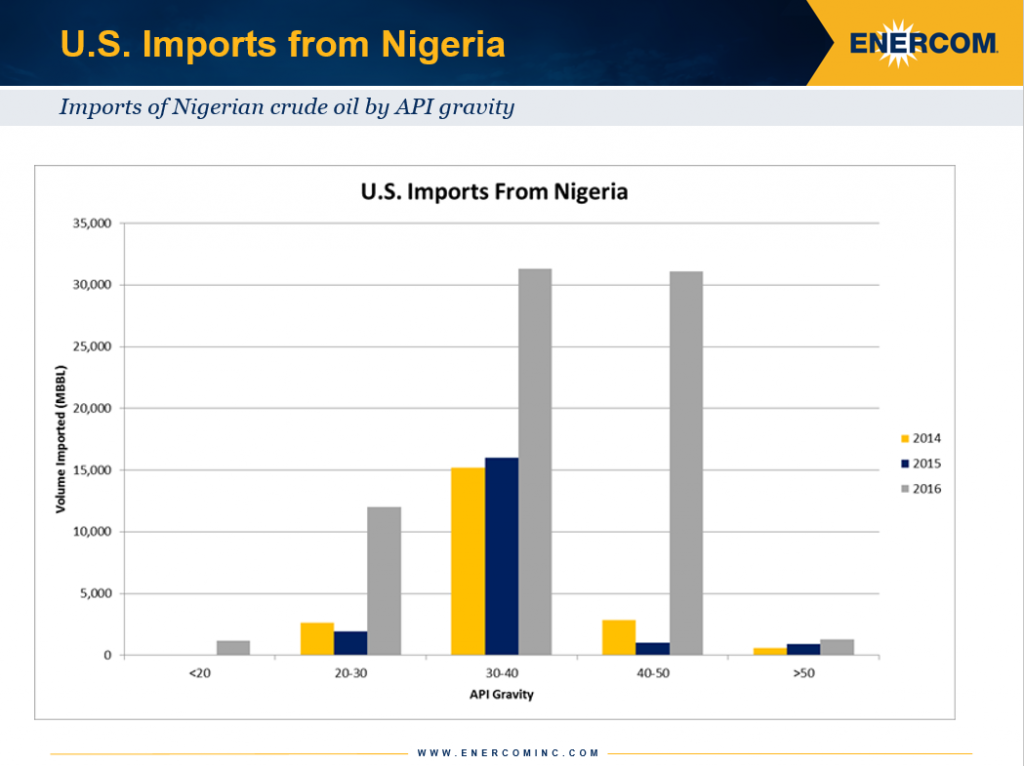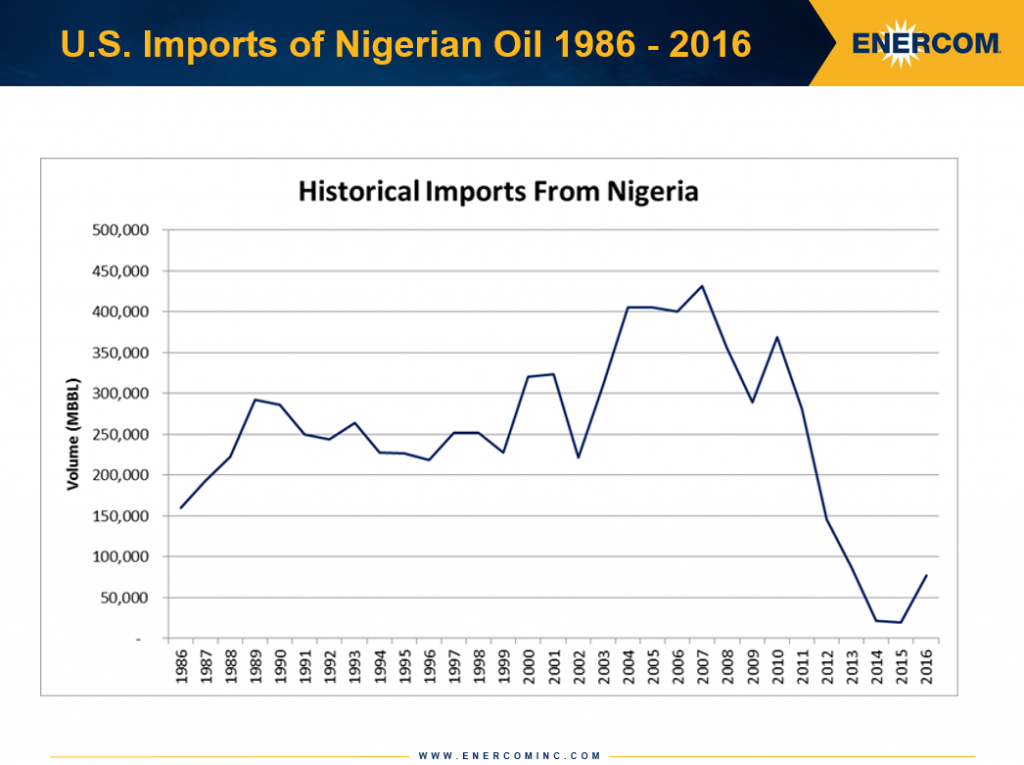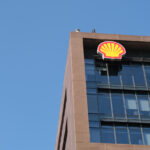Shell lifts force majeure on Forcados oil in Nigeria
Royal Dutch Shell (ticker: RDSA) lifted force majeure on exports of Nigeria’s Forcados oil grade, returning about 250 MBOPD to world markets, according to shipment data obtained by Bloomberg. Europe’s largest oil company placed the crude grade under force majeure – meaning the company could miss contractual obligations due to circumstances outside of its control – more than a year ago after repeated attacks on infrastructure by the Niger Delta Avengers (NDA).
The NDA militia attacked a number of oil and gas pipelines in Nigeria in an attempt to undermine the presidential administration. The attacks dropped the country’s oil output by 1 MMBOPD to just 0.8 MMBOPD in June of last year.
Ready to put about 20% of the OPEC cut production back into global oil supply
The persistent attacks on the country’s oil and gas industry were part of the reason OPEC decided to exempt Nigeria from its production cuts at the end of 2016, and again when the deal was extended last month. With the end of Shell’s force majeure, however, Nigeria stands ready to add roughly 20% of the barrels OPEC is trying to cut back into the market.
“The market is already drowning” in similar types of crude to the Forcados grade, said Ehsan Ul-Haq, an oil analyst at KBC Advanced Technologies. The return of the grade will only add to that, he said.
Forcados exports will increase Nigeria’s output more than 10%
Before force majeure was declared on the crude grade, Forcados was the single largest crude type produced by Nigeria. The country produced about 200 MBOPD of Forcados in 2015 before the NDA stepped up attacks. The scheduled cargoes for June will make volumes of Forcados the second-largest crude grade to be exported by Nigeria, according to loading data.
The ultimate effect will be Nigeria’s output increasing more than 10% to above 2 MMBOPD.
The increased output from Nigeria represent new problems for OPEC as well. Nigeria and Libya are both free from the output restrictions the rest of the group has imposed on themselves, but the two’s success in getting new production to market is undercutting the larger group’s agreement.
OPEC production rose in May to 32.2 MMBOPD, up 0.3 MMBOPD from the previous month, according to a Bloomberg survey. Libya and Nigeria contributed the majority of those gains while the 11 members that agreed to production cuts continue to be fully compliant with their pledges.
The added supply from the exempt members of OPEC left the group roughly 44% short of its production cut goals in May, compared to 10% shy in April. Already markets are expecting more from OPEC before prices start to rise again, and the added pressure coming from OPEC’s exempt members appears to be undercutting the group further.
The U.S. is importing light crudes in increasing amounts from Nigeria
For its own part, the United States has been importing a greater amount of light crude from Nigeria. Imports of light crude grades from Nigeria to the U.S. spiked in 2016, according to data from the EIA.
Historically, U.S. imports of Nigerian crude oil have been much higher than they were in 2016. Imports fell from about 375 MBO in 2011 to about 25 MBO in 2014 as the U.S. shale revolution picked up steam.









